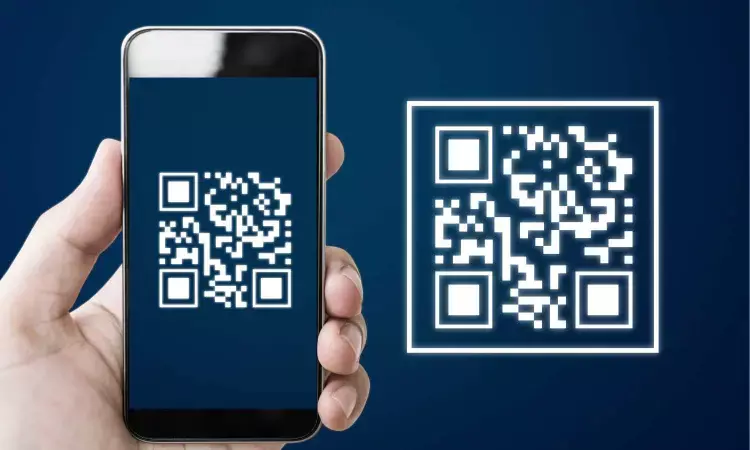- Home
- Medical news & Guidelines
- Anesthesiology
- Cardiology and CTVS
- Critical Care
- Dentistry
- Dermatology
- Diabetes and Endocrinology
- ENT
- Gastroenterology
- Medicine
- Nephrology
- Neurology
- Obstretics-Gynaecology
- Oncology
- Ophthalmology
- Orthopaedics
- Pediatrics-Neonatology
- Psychiatry
- Pulmonology
- Radiology
- Surgery
- Urology
- Laboratory Medicine
- Diet
- Nursing
- Paramedical
- Physiotherapy
- Health news
- Fact Check
- Bone Health Fact Check
- Brain Health Fact Check
- Cancer Related Fact Check
- Child Care Fact Check
- Dental and oral health fact check
- Diabetes and metabolic health fact check
- Diet and Nutrition Fact Check
- Eye and ENT Care Fact Check
- Fitness fact check
- Gut health fact check
- Heart health fact check
- Kidney health fact check
- Medical education fact check
- Men's health fact check
- Respiratory fact check
- Skin and hair care fact check
- Vaccine and Immunization fact check
- Women's health fact check
- AYUSH
- State News
- Andaman and Nicobar Islands
- Andhra Pradesh
- Arunachal Pradesh
- Assam
- Bihar
- Chandigarh
- Chattisgarh
- Dadra and Nagar Haveli
- Daman and Diu
- Delhi
- Goa
- Gujarat
- Haryana
- Himachal Pradesh
- Jammu & Kashmir
- Jharkhand
- Karnataka
- Kerala
- Ladakh
- Lakshadweep
- Madhya Pradesh
- Maharashtra
- Manipur
- Meghalaya
- Mizoram
- Nagaland
- Odisha
- Puducherry
- Punjab
- Rajasthan
- Sikkim
- Tamil Nadu
- Telangana
- Tripura
- Uttar Pradesh
- Uttrakhand
- West Bengal
- Medical Education
- Industry
Attention Chemists: All Pharmacies to Mandatorily Display PvPI QR Code, ADR Toll-Free Number

New Delhi: Every chemist and pharmacist in the country will now be required to mandatorily display the Pharmacovigilance Programme of India (PvPI) QR code and the ADR toll-free number at all retail and wholesale pharmacy premises across India, as directed by the Central Drugs Standard Control Organisation (CDSCO).
With QR-based reporting becoming more accessible and user-friendly, the move is expected to significantly boost Adverse Drug Reaction (ADR) reporting rates and further strengthen India’s drug safety and pharmacovigilance surveillance system.
The directive, issued through a circular dated November 20, 2025 by the Drugs Controller General of India (DCGI), emphasizes that the move is aimed at making ADR reporting more accessible to the public as well as healthcare professionals.
According to the circular, issued from the “Office of Drugs Controller General (India) (Post Marketing Drugs Safety Monitoring Division), FDA Bhawan, New Delhi,” the decision was taken during the 16th Working Group Meeting of the Pharmacovigilance Programme of India (PvPI) held on 18.06.2025.
Mandatory QR Code Display at Every Pharmacy
In a clear directive to all State and Union Territory Licensing Authorities, the circular states, “all State Licensing Authorities and Union Territory Drug Licensing Authorities shall ensure the display of the designated QR Code (attached herewith) at a prominent location within every retail and wholesale pharmacy premises across the country.”
This means every chemist shop, whether a single-store outlet, chain pharmacy, or wholesale distributor—must place the official PvPI QR code where customers can easily see and scan it.
Toll-Free Number Must Also Be Displayed
Along with the QR code, pharmacies must also display the PvPI helpline. The circular specifically instructs, “Additionally, the toll-free number of also be clearly displayed with the QR Code at each pharmacy outlet.”
The toll-free number enables the public to report adverse events over phone, while the QR code directs users to the digital reporting system.
Integration With PvPI’s Indigenous ADR Monitoring System
The CDSCO highlights that this initiative is intended to improve the functioning of the national pharmacovigilance network.
“This measure will facilitate seamless reporting of Adverse Events/Adverse Drug Reactions (AE/ADRs) by the public and healthcare professionals through the indigenous PvPI Adverse Drug Reaction Monitoring System (ADRMS)," the circular explains.
India has been strengthening its ADR monitoring infrastructure over the past decade, in line with global regulatory expectations and WHO recommendations.
Immediate Implementation Directed
The DCGI has instructed licensing authorities to take urgent action. “It is therefore requested to initiate immediate action for implementation of the above instructions within your jurisdiction. Kindly ensure wide dissemination among all the license holders and monitor strict compliance with these directives to promote drug safety and protect public health, " the notification reads.
The centre has also acknowledged the cooperation of state authorities, adding: “Your continual support and cooperation towards strengthening pharmacovigilance practices in India are highly appreciated.”
Public Guidance Included in the Circular
The circular also includes an advisory for the general public, instructing them on how to report suspected ADRs:
“If you experience/suspect any adverse event after taking medicine, kindly report through the following modes:”
It further provides a specific instruction for QR-code reporting: “Scan this QR code to report suspected ADR”
Mpharm (Pharmacology)
Susmita Roy, B pharm, M pharm Pharmacology, graduated from Gurunanak Institute of Pharmaceutical Science and Technology with a bachelor's degree in Pharmacy. She is currently working as an assistant professor at Haldia Institute of Pharmacy in West Bengal. She has been part of Medical Dialogues since March 2021.


